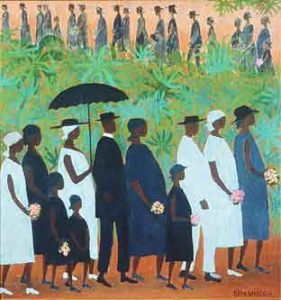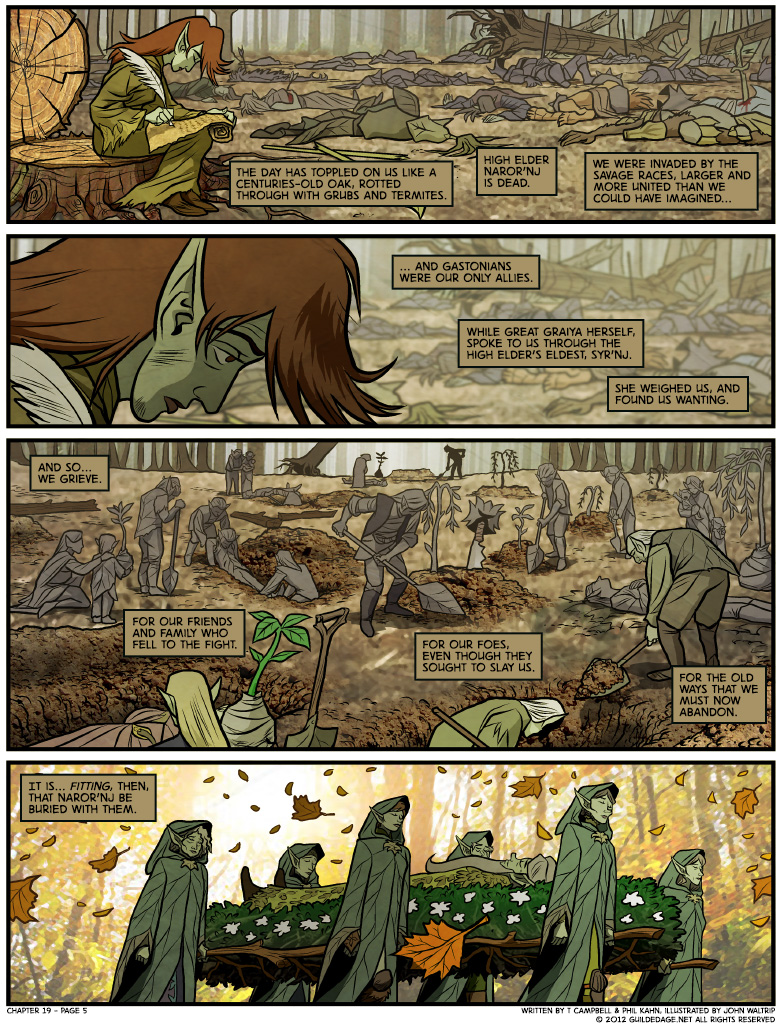Annotated 19-5
 Alt text aside, I don’t think Kur’Ik means to be throwing shade in the last frame. She lists the loss of Naror’Nj as among the tragedies that have beset her people. She’s just observing, not incorrectly, that Naror’Nj embodied old beliefs that other events have now mooted.
Alt text aside, I don’t think Kur’Ik means to be throwing shade in the last frame. She lists the loss of Naror’Nj as among the tragedies that have beset her people. She’s just observing, not incorrectly, that Naror’Nj embodied old beliefs that other events have now mooted.
What would have happened, had he lived? Could he have changed enough to concede that maybe, in this temporary limited context, an alliance with the humans would be (shudder) necessary? If he didn’t, could Faereksch’Nj convince him to step aside as high elder before things got ugly? (As we will learn in a few pages, he did have a few doubts he voiced to her regularly.)
Hard to say, but one thing’s certain: the “kill all humans” faction of B’ial Vezk is no longer a viable political base (as we’ll soon see, even Kon’Kr has abandoned it). Though it’s certainly cruel that Naror’Nj didn’t mend fences with his daughter before he died, in other ways, it was indeed his time to go.











Necessity requires an alliance with Gastonia, but I really can’t find fault with Naror’Ng’s stance on humans. The ruling houses are hardly as altruistic as proclaimed.
“…and his glorious beard.”
That second panel is really strong. Kur’Ik is clearly exhausted, morally demolished and surrounded by the stench of death, yet she writes on. And among the words produced in such a state, there’s room for compassion for her enemies and for the sober realisation of the necessity for societal change.
I wonder. Is the grave ornamented by a troll helm and sword an elf warrior being buried with trophies from the battle, or does it in fact show that fallen enemies are being buried alongside the elfs? Kuri’ik’s writing gives me the sense of the latter.